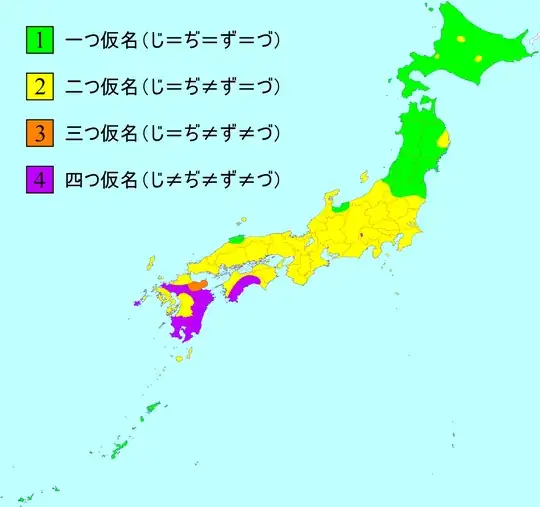According to Wikipedia (and some posters here), Kagoshima Japanese resists the じ・ぢ and ず・づ mergers, much in the same way that various English dialects retain differences between words like meet and meat:
 But the gendai kanadzukai (or rather kanazukai) has flattened out the orthographical distinctions between these kana. Is this just a "sucks to speak a nonstandard dialect!" sort of situation? I believe I remember reading in a different Wikipedia article (although I can't find it now) that said that ぢ and づ were "not completely obsolete" because of the Kagoshima dialect. Do Kagoshima speakers, when writing in their own vernacular, still use the ぢ- and づ-based spellings of words that they pronounce differently?
But the gendai kanadzukai (or rather kanazukai) has flattened out the orthographical distinctions between these kana. Is this just a "sucks to speak a nonstandard dialect!" sort of situation? I believe I remember reading in a different Wikipedia article (although I can't find it now) that said that ぢ and づ were "not completely obsolete" because of the Kagoshima dialect. Do Kagoshima speakers, when writing in their own vernacular, still use the ぢ- and づ-based spellings of words that they pronounce differently?
Also... what's that little speck of purple on the edge of Yamanashi?